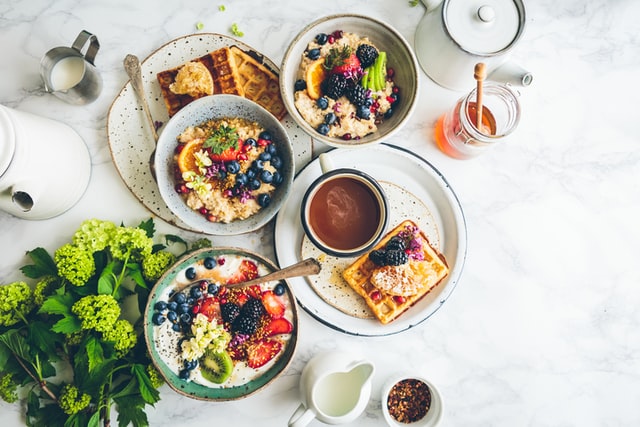Fall and winter have a lot of great things, like leaves changing color, pumpkin patches, Christmas decorations, and getting together with family.
But when it gets cold and grey outside, you might get the winter blues. To deal with these feelings, try eating foods that are known to make you feel better.
Susan Albers, PsyD, a psychologist, says, “The foods we eat not only affect our mood but also how we sleep and how much energy we have.” “And that can affect us for the rest of the day.”
How food can change how you feel
Dr. Albers says that studies have shown that when the seasons change, people often eat more when they are upset.
“In this study, people who feel sad in the winter and fall because of the short day’s snack more, want starchy and sweet foods more, and eat more in the evenings,” she says.
During the winter, you should avoid or eat less of the following foods:
- Sugar.
- Alcohol.
- Foods with starch.
- Made-up foods.
Foods that are sweetened with sugar, like soda and cookies, and foods that are made with flour, like bread, crackers, and baked goods, might give you a quick boost of energy, but their low nutritional value could leave you feeling tired and down later.
“If you like salty snacks, try spicy roasted chickpeas instead of chips,” says Dr. Albers. “Not only do they have a great crunch, but they’re also a great source of nutrients.”
Foods that can make you feel better
There are a lot of foods that can make you feel better. If you take it slow, you’ll see results.
“Too often, we think about what foods we should take out of our diets,” says Dr. Albers. “Think about additions, and try to add one food a day. Make it a goal to eat one of these foods every day, and your mood will get better over time.
Vitamin D-rich foods
Red meat (less than 6 ounces per week), mushrooms, egg yolks, tuna, salmon, and sardines are all good sources of vitamin D. You should also look for things like milk, yogurt, and cereal that have been added vitamin D.
Dr. Albers says that people who eat out of emotion tend to have lower levels of vitamin D in the winter, which is linked to more anxiety and depression.
Vitamin C-rich foods
If you want to get more vitamin C, you can eat oranges, mangoes, lemons, kiwis, broccoli, bell peppers, and strawberries. Vitamin C can help with things like depression, Alzheimer’s, and anxiety.
“Adding foods high in vitamin C is one of the best things you can do to help your immune system and improve your mood,” says Dr. Albers.
Protein-rich foods
Beef, chicken, turkey, and eggs are all good sources of protein.
Dr. Albers says that these foods are linked to higher levels of dopamine and norepinephrine, which are chemicals in the brain that affect our mood, motivation, and ability to focus.
Vegan or vegetarian? Chickpeas, lentils, or tofu are great ways to get the protein you need.
Sweet potatoes
This holiday season, instead of white potatoes, try sweet potatoes, which are a good source of vitamin A and go well with comfort foods.
Dr. Albers says, “Sweet potatoes have fiber, which breaks down very slowly and can help your blood sugar.” “This, in turn, makes you less hungry and less likely to eat when you’re upset.”
Magnesium, which is found in a lot of sweet potatoes, has been shown to help reduce anxiety.
Beets
If you’re feeling anxious or stressed, beets are a good choice.
Dr. Albers says that beets can make your blood sugar go down. “Eating beets can also help lower your blood pressure in just a few hours.”
Walnuts
Start right away to add walnuts to your meals. Walnuts are good for your memory, attention, and language, and they can also make you feel better.
In a study, people who ate a handful of walnuts every day for five days had a lot less hunger and cravings for starchy and sugary foods.
Cocoa
Dr. Albers says to warm up with a hot cup of cocoa.
“Not only is it soothing and sweet in the winter,” she says, “but it’s also warm and comforting.” But cocoa also has a lot of polyphenols.
Polyphenols are very powerful antioxidants that can help improve your mood because they reduce inflammation. Many studies have shown that polyphenols can help you concentrate and pay attention better.
No matter what you eat in the winter, Dr. Albers says you shouldn’t be too hard on yourself.
“Dieting is out of the question as the holidays are coming up. Dr. Albers says, “This is often stressful for people, so they should instead focus on eating at the moment.” “This is slowing down, being in the moment, and enjoying and savoring your food instead of trying to stay away from certain foods.”
